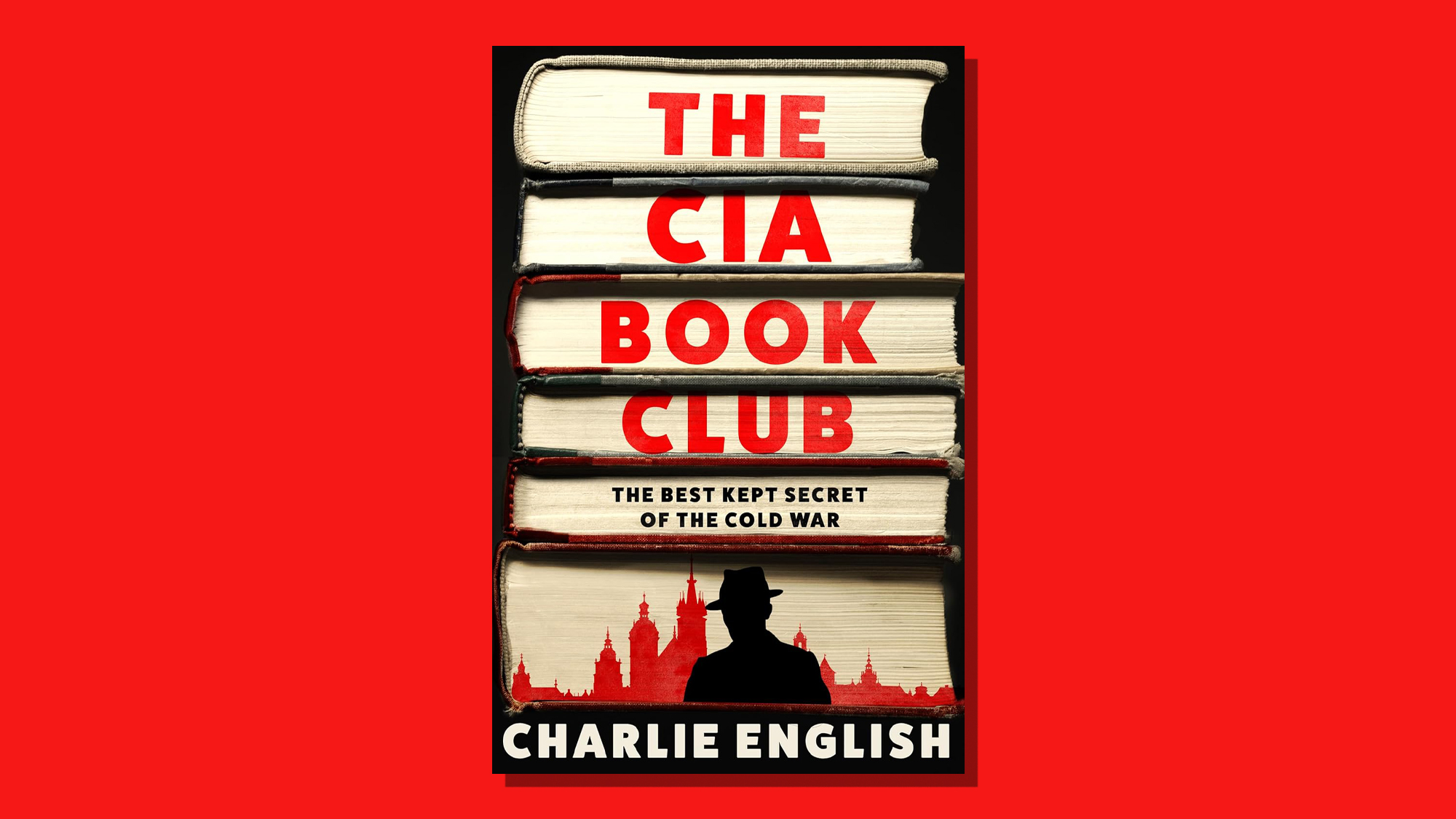The CIA Book Club: 'entertaining and vivid' book explores a huge Cold War secret
Charlie English's 'gripping' narrative explores a covert smuggling operation across the Iron Curtain

A free daily email with the biggest news stories of the day – and the best features from TheWeek.com
You are now subscribed
Your newsletter sign-up was successful
In March 1984, customs officials at the port of Swinoujscie, in northwestern Poland, spotted something suspicious about a truck that had "arrived on an overnight ferry from Copenhagen", said Luke Harding in The Observer.
While inspecting its contents, they noticed that its interior was disproportionately small. Breaking through a walled-off panel, the officials found a cache of 800 books and pamphlets, along with "illicit printing presses" and "forbidden walkie-talkies". The source of this "reactionary propaganda" was none other than the CIA, which over a 35-year period sought to sow dissent in eastern Europe by flooding it with books, magazines and videotapes banned behind the Iron Curtain. "The methods used were ingenious": copies of Orwell's "Nineteen Eighty-Four" were floated over the border in balloons; Solzhenitsyn's "The Gulag Archipelago" was stuffed into a baby's nappy on a flight to Warsaw.
In his "entertaining and vivid new work", Charlie English examines this "highbrow delivery service" and argues that, in several countries, including Romania and Hungary, it helped hasten the demise of communism.
The Week
Escape your echo chamber. Get the facts behind the news, plus analysis from multiple perspectives.

Sign up for The Week's Free Newsletters
From our morning news briefing to a weekly Good News Newsletter, get the best of The Week delivered directly to your inbox.
From our morning news briefing to a weekly Good News Newsletter, get the best of The Week delivered directly to your inbox.
English focuses particular attention on the CIA's smuggling operation in Poland, which he turns into a "vivid and moving story", said Dominic Sandbrook in The Sunday Times. "He is terrific at evoking the atmosphere of Poland in the 1970s and 1980s – not just the regime's narrowed horizons and suffocating repression, but the excitement of the Solidarity trade union movement and the idealism of the young dissidents." He picks out several "memorable" characters, including Solidarity's "minister for smuggling", Mirosław Chojecki, a blue-eyed rebel whose friends thought him like a "Polish Christ". So gripping is this material that "your heart slightly sinks" whenever English cuts to the US side of the story, "which is essentially a series of committee meetings".
The CIA's smuggling operation sought to bypass a Polish censorship system "which was both ubiquitous and ridiculous", said Piers Brendon in Literary Review. "Every typewriter had to be registered, access to photocopiers was restricted", and even a book about growing carrots was banned "because it implied that individuals as well as collectives could cultivate vegetables".
In such a climate, smuggled books were a lifeline, said John Simpson in The Guardian. "A book was like fresh air," a Polish activist recalls. "They allowed us to survive and not go mad." Finely written and well researched, this book is a reminder of the role literature played in the collapse of the "Soviet empire in Europe".
A free daily email with the biggest news stories of the day – and the best features from TheWeek.com
-
 What to know before filing your own taxes for the first time
What to know before filing your own taxes for the first timethe explainer Tackle this financial milestone with confidence
-
 The biggest box office flops of the 21st century
The biggest box office flops of the 21st centuryin depth Unnecessary remakes and turgid, expensive CGI-fests highlight this list of these most notorious box-office losers
-
 What are the best investments for beginners?
What are the best investments for beginners?The Explainer Stocks and ETFs and bonds, oh my
-
 A thrilling foodie city in northern Japan
A thrilling foodie city in northern JapanThe Week Recommends The food scene here is ‘unspoilt’ and ‘fun’
-
 Tourangelle-style pork with prunes recipe
Tourangelle-style pork with prunes recipeThe Week Recommends This traditional, rustic dish is a French classic
-
 Samurai: a ‘blockbuster’ display of Japan’s legendary warriors
Samurai: a ‘blockbuster’ display of Japan’s legendary warriorsThe Week Recommends British Museum show offers a ‘scintillating journey’ through ‘a world of gore, power and artistic beauty’
-
 BMW iX3: a ‘revolution’ for the German car brand
BMW iX3: a ‘revolution’ for the German car brandThe Week Recommends The electric SUV promises a ‘great balance between ride comfort and driving fun’
-
 Arcadia: Tom Stoppard’s ‘masterpiece’ makes a ‘triumphant’ return
Arcadia: Tom Stoppard’s ‘masterpiece’ makes a ‘triumphant’ returnThe Week Recommends Carrie Cracknell’s revival at the Old Vic ‘grips like a thriller’
-
 My Father’s Shadow: a ‘magically nimble’ love letter to Lagos
My Father’s Shadow: a ‘magically nimble’ love letter to LagosThe Week Recommends Akinola Davies Jr’s touching and ‘tender’ tale of two brothers in 1990s Nigeria
-
 Send Help: Sam Raimi’s ‘compelling’ plane-crash survival thriller
Send Help: Sam Raimi’s ‘compelling’ plane-crash survival thrillerThe Week Recommends Rachel McAdams stars as an office worker who gets stranded on a desert island with her boss
-
 Book reviews: ‘Hated by All the Right People: Tucker Carlson and the Unraveling of the Conservative Mind’ and ‘Football’
Book reviews: ‘Hated by All the Right People: Tucker Carlson and the Unraveling of the Conservative Mind’ and ‘Football’Feature A right-wing pundit’s transformations and a closer look at one of America’s favorite sports